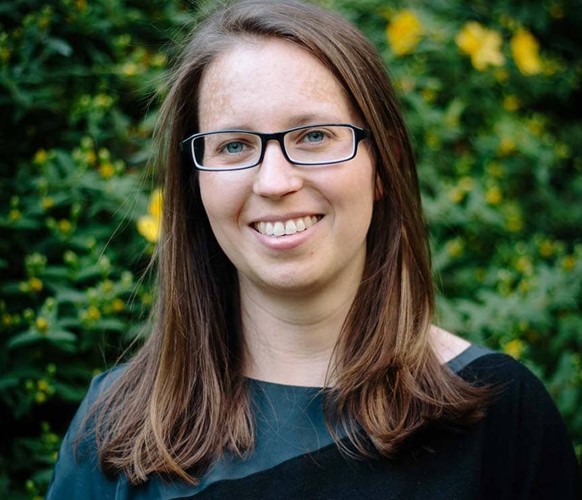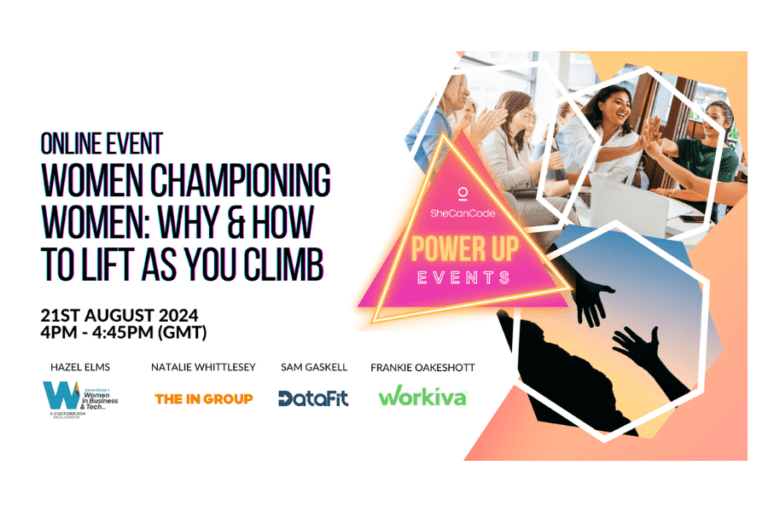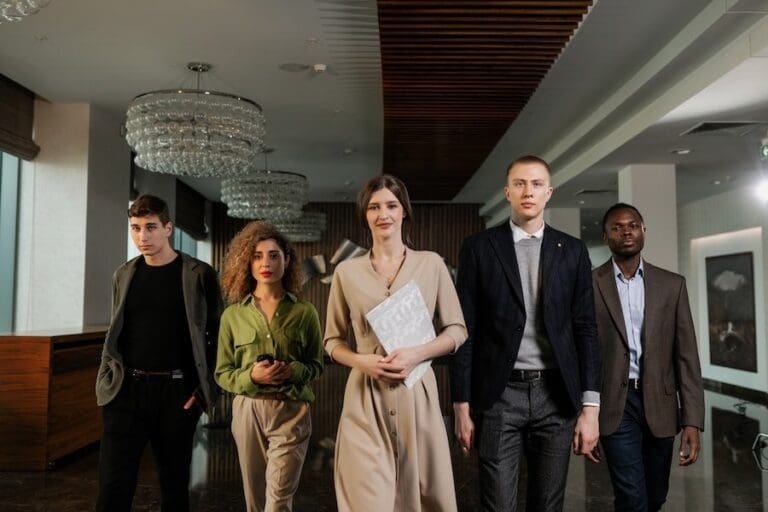She is responsible for delivering products that both delight users and create value for clients. She leads the production team through user-centered design processes and supports all aspects of the business including design, account management, business ops, and HR.
1. Tell us a little bit about the journey you took from starting out as a designer to becoming a Co-Founder.
I started out with a degree in Product Design from Glasgow School of Art, which during my 4th and final year, solidified my plan to steer towards designing tech products as opposed to more classical routes such as industrial design. During my time there, I learned about climate change which ignited my desire to work towards solving some of the biggest dilemmas involved (such as energy or food). For insights on various paths in cybersecurity, check out Diverse Journeys in Cybersecurity.
After graduating, I found a job as a UX designer for a sustainable design agency that worked on a few Energy-related matters (such as working to understand the behaviour of staff in office spaces that can influence how we can reduce energy usage) along with putting theory to practice by designing apps, games and websites.
During this journey, I was able to sharpen my skills and take away some fundamental lessons of what makes a great UX designer. One of them was the importance of being able to work with any user and being able to truly capture, understand and find the solutions to their problems. A good designer will never assume they know the answer themselves. You are merely the conductor of the design process, making sure everyone comes together at the right time and place. It is incredibly impactful, and a universal skill that can be applied practically anywhere.
The only differences today are the content, audience, resources available and the scale at which you apply the design process.
Later on, I worked for another agency for a couple years becoming more exposed to stakeholder management and learning how to include customers in the design process (which was quite eye opening in respect to the complicated expectations that need constant management). This time was a steep learning curve for me, but it has helped for the rest of my career in how I follow processes and manage multiple stakeholders.
My journey as a designer has often been influenced by my experiences with dyslexia. Knowing that we all respond uniquely to whatever is being presented to us, I knew that my neurodiversity can be a strength, as I was able to empathise with any audience. I also noticed a strength in pattern recognition, being able to analyse information quickly is key to my current role.
I met Andy Kilner (Co-founder and CTO of Piclo) in my first job, who was a software engineer at that time. It’s quite normal to find the paths of a software engineer and designer to cross and we became good friends. Andy found James Johnston (Co-founder and CEO of Piclo) who had an exciting proposal to build a new digital product in the energy industry to help with the transition to net zero.
Having known how important design thinking would be, Andy had asked if I was interested and I joined the founding group in November 2013.
2. What makes sustainable energy such an exciting space to be in today?
Whilst there are so many problems to solve in this world, the feat of transforming our energy systems definitely ranks up in my top three of the most important issues to tackle (with biodiversity and food also interesting problems to solve in this age of climate breakdown). Energy supply and demand in particular is very relatable. I live in a house, I charge a computer, I depend on electricity so much that even if we had a blackout for half a day, all facets of life and routine such as work, food and water would be impacted. Electricity runs human society and that’s why energy flexibility was so exciting, given its potential to decarbonise our energy systems.
I also found that of all the industries that need to make progress regarding climate action, energy has been one of the most action-orientated industries. Industries dealing with biodiversity loss or
construction, for instance, have a way bigger hill to climb. Yes, there is a lot of progress to make in total, but it’s exciting to see how much the energy space has progressed since I started looking into it.
One thing that is exciting about this space is just how much change there is expected to take place in the next decade than the last century. And it means new minds and perspectives from varied disciplines are being valued to create change. We’ve seen this industry be dominated by the likes of business people and electrical engineers, yet we are now having designers and product thinkers involved to reimagine the solutions we need.
3. What benefits does a designer’s skills and experience bring to running a business effectively?
There are a few skills from a designer’s remit that can be applied to all facets of running a business.
Designers are effective problem solvers. We take a process, extract information, analyse it, play it back and get solutions. We never go into a process with an agenda but with an open mind. Designers are also able to understand the difference between what someone says and what someone means. And lastly, a designer will always be user-led, not ego-led.
At Piclo, I feel like bringing these types of skills has been critical in helping us navigate the difficulties of starting a new business in the energy industry. We started out knowing very little about what we can do. Fast forward almost 10 years later and we are now transforming our energy systems with a growing team of over fifty. I think the only way we were able to navigate through chaos in the early days was to utilise the design skills of everyone involved. Doing so was instrumental in reaching milestones.
4. How do your mission and values impact how you design and develop your product?
Many of our company values have, in fact, been informed by the values of design. When working with Andy and James in the early days, we knew what it would take to build a great product and successful business, and we made sure to create values right at the beginning of Piclo that would facilitate that kind of environment. I wanted to make sure that our values (collaboration, keep things simple are two examples) were kept in place to protect effective processes across the business, not just in the production teams.
One of our other values is to ‘be human’. Take our API’s and integrations, to make them work we need the team to understand that humans will always be involved in the setup and ongoing management of automated integrations. So the solutions designed for those companies using our APIs are not just secure and scalable, they are easy to use and intuitive for those engineers who use them. We wanted to ensure that we are a product built by humans for humans, with technology choices that provide value to our customers today.
5. What elements of your culture/inclusive policies are you most proud of?
There are quite a few things I am pleased to see influencing our business. I spoke about collaboration as a value at Piclo, and it’s truly great seeing teams working together despite coming from completely different disciplines. What makes that work so well is creating a culture of open and transparent communication. It’s something that has helped us be more agile as a company, and with our ‘be human’ value, means that we all understand that mistakes happen. We encourage taking ownership and being proactive whenever there is something we might have missed, it’s not something to be ashamed of.
Another exciting thing to see is how other teams are adopting design-like thinking. For example, as a designer you are quite used to doing a lot of testing. Yet for new teams, it’s a relatively new concept.
We’re seeing the likes of our operations and HR teams testing out policies and receiving feedback. I think that there are lots of traditional business practices that could learn from design thinking principles and agile production methodologies, and the benefit of being a founder is being able to share and demonstrate this knowledge to a wide audience.







